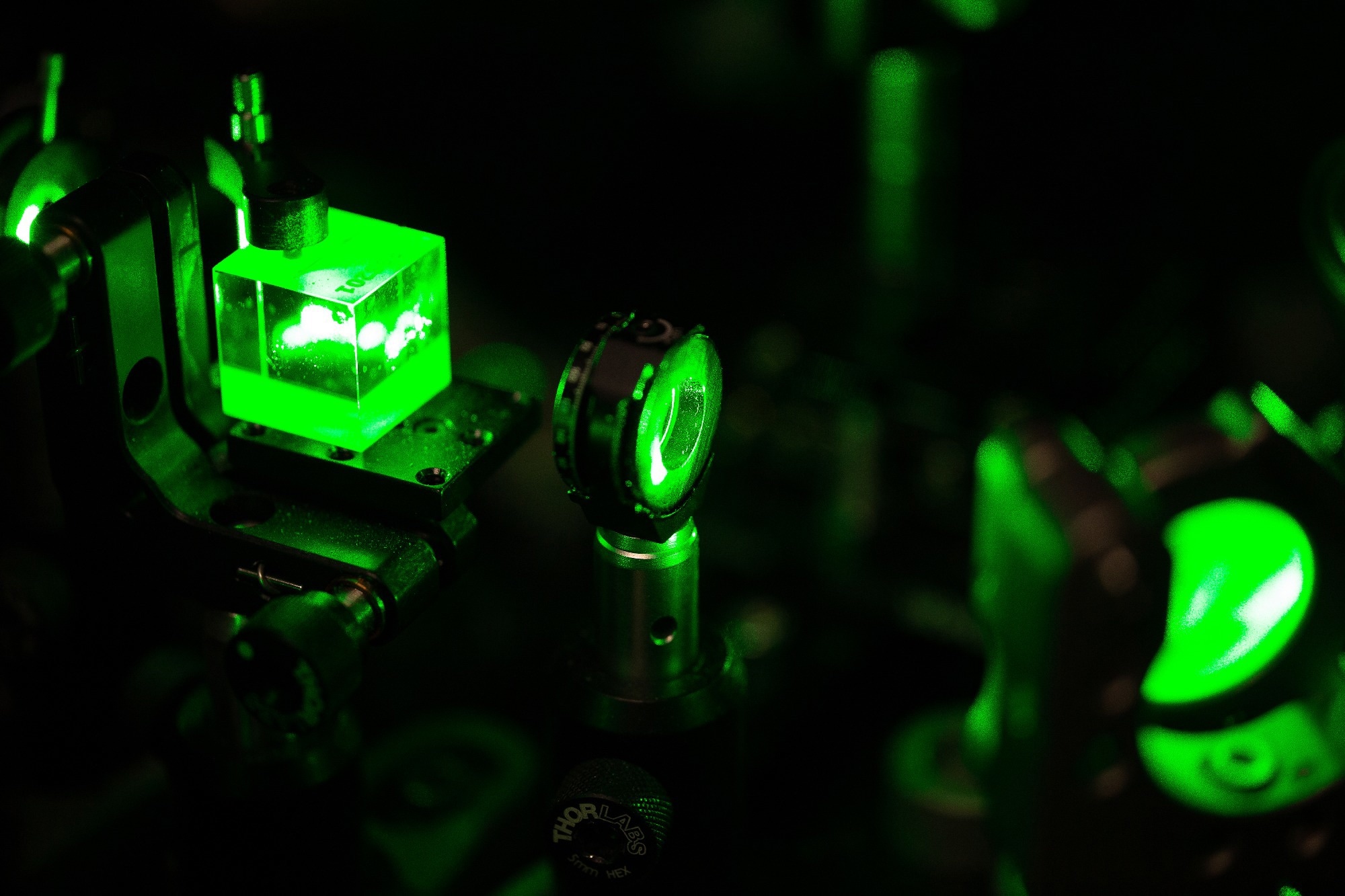 Researchers use the so-called color centers in diamonds, energized using green laser light, to develop an innovative diagnostic technique for brain tissue. Image Credit: Arne Wickenbrock.
Researchers use the so-called color centers in diamonds, energized using green laser light, to develop an innovative diagnostic technique for brain tissue. Image Credit: Arne Wickenbrock.
If, for example, a nerve pathway connecting this to the arm is cut, the patient will be unable to move that arm after the procedure. Adequate diagnostics are already assisting in identifying and preserving these nerve tracts and brain regions.
The German Federal Ministry of Education and Research (BMBF) is funding the five-year initiative, which began in October 2022, with over EUR 11 million. Mainz University will get EUR 1.5 million as project leader.
The joint initiative BrainQSens, in which JGU was also represented, served as the foundation for the DiaQNOS project. The BrainQSens consortium created highly sensitive magnetic sensors to aid in medical diagnostics.
“In this flagship quantum sensor project, we have already been able to improve the magnetic field sensor technology to such an extent that, in principle, magnetic fields of the brain can be registered with it. Now it's a matter of taking the next steps on the way to medical application and making quantum sensor technology useful for society,” details Dr. Arne Wickenbrock from JGU and HIM, who coordinates the joint project.
The DiaQNOS consortium underlines this application focus by including medical device manufacturer inomed Medizintechnik GmbH and neurosurgeons from Freiburg University Hospital, i.e., the technology’s future users. Furthermore, Sacher Lasertechnik GmbH and TTI GmbH, both of which have commercialization experience, offer their insights.
A three-year development period, followed by two years of medical study, will be used to create a device that can be used in surgery. For example, brain tissue samples from a tissue bank in Freiburg will be evaluated for the first time for magnetic properties, particularly in relation to new diagnostic possibilities for brain malignancies.
Mainz Expertise in the Construction of a Quantum Sensor
Mainz University and HIM scientists are working on developing the quantum sensor, among other things. Professor Dmitry Budker’s research team has helped to establish magnetography as a core competency at Mainz over the years, and he will lend his experience to the project.
Wickenbrock concludes, “These quantum sensors are based on nitrogen vacancies in diamonds, i.e., nanoscale magnetic field sensors confined in the diamond. A huge number of these magnetic field sensors can exist in a thin layer of diamond. This makes it possible for us to create a magnetic image of the object that the sensor sees.”
Electrical charges whiz through the nerve pathways to communicate with the human body. Each flowing charge produces a magnetic field, resulting in many magnetic fields in the human body, including the brain.
The sensor is intended to detect and evaluate these, providing surgeons with more information about the function of the appropriate brain areas. This will allow surgeons to arrange the incision path more accurately and gently on the patient.